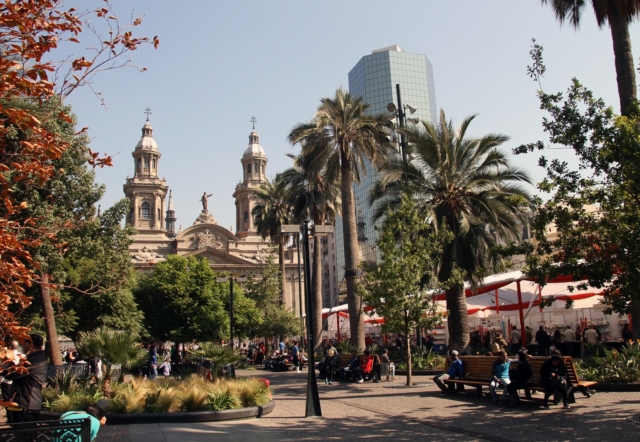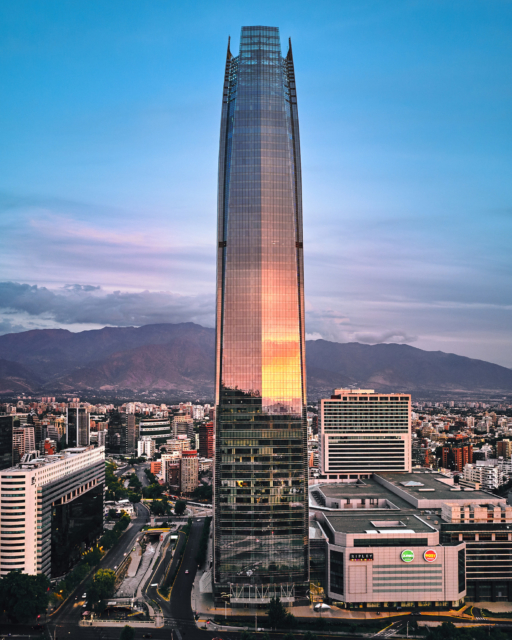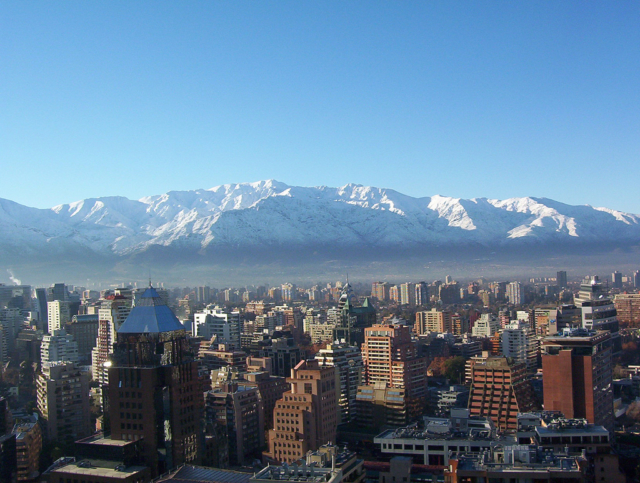
Santiago, Chile by pixabay
Stretching along South America’s lower western coast, the long and slender country of Chile is slightly smaller than Turkey, slightly larger than the U.S. state of Texas and contains more than five thousand islands. It comes as no surprise that Chile has been called one of the most beautiful countries to visit due to its lush coastline, which Chileans strive to preserve. Chile is actually the first country in the Americas to have banned plastic bags in stores, beginning just this year. Chile is progressing as a leader on environmental issues and quality of life through cultural, economic and educational achievements. With a promising future ahead, Chile is bound to enjoy increased international business. Chile is a stable home to home to numerous multinational companies and startups, positioning it as a safe hub of innovation with and a climate ripe for investment. Here are a few starting points to navigating business endeavors in this outstanding South American country.
Chilean Culture
Chilean culture values personal stability, internationalism, and has a European orientation. They are considered the “fastest payers” in Latin America. Chilean people are considered pragmatic as a whole, and the majority of Chile is shifting to a secular lifestyle despite the heavy Roman Catholic and Protestant influence of its past. Hofstede Insights notes that social classes are quite rigid in society and hierarchy still holds strong. Chile scores rather low on the Individualism and Masculinity dimensions, which can be seen in its collectivist, family-oriented culture where people “work to live” and feel a sense of belonging within their social groups. In the workplace, managers seek solutions through compromise and consensus. Chile shys away from uncertainty, preferring structure to ensure social harmony.

Gran Torre Santiago, Costanera Center by Deensel on flikr
Santiago, Chile
More than one-third of Chile’s population resides in Santiago, a city of more than 5 million residents. In large cities such as Santiago, individualism is more readily accepted, due in part to economic development and a rise in GDP.
Santiago is home to Internationally renowned cuisine and a vast assortment of boutique shopping options. Santiago also has Neoclassical architecture and historical landmarks such as the Presidential Palace. There is a vibrant nightlife in Bellavista, a bohemian neighborhood surrounded by great food, art and places to dance.
Business Etiquette Tips
Here are a few business tips to get you started on your business ventures in Chile:
- Have a local Chilean representative, particularly for legal and translation purposes.
- To deflect attention from yourself and your organization, listen and ask questions to demonstrate your genuine interest. Avoid long monologues.
- Dedicate time to build relationships through networking. Social groups are very important in Chile. Build a comfortable rapport with your counterparts before approaching decision-makings subjects. It’s better to take your time, express a genuine interest in the individual and take the focus away from yourself. If you come across as too pushy at first, they may not want to pursue business with you.
- Compliment them on being the fastest payers in South America.
- Use a polite, diplomatic tone when speaking to protect Chilean dignity.
- Avoid discussing or comparing Argentina due to inherent rivalry. Chileans have national great pride and dislike outsiders discussing perceived similarities of neighboring countries. Avoid the Pinochet topic as Chileans are divided.
- Accept Chilean flexibility with truth. Chileans value diplomacy so they may say what you want to hear; as opposed potentially negative responses.
- Learn some Spanish language phrases, along with Chilean history and geography to cut through language barriers, establish the right connections and see through specialized circumstances.

Santiago en invierno (Winter in Santiago Chile) by fahrenheit75 on flikr
Sharon Schweitzer and Vienna Raglin co-wrote this post. Sharon Schweitzer, J.D., is a cross-cultural trainer, modern manners expert, and the founder of Access to Culture. In addition to her accreditation in intercultural management from the HOFSTEDE centre, she serves as a Chinese Ceremonial Dining Etiquette Specialist in the documentary series Confucius was a Foodie, on Nat Geo People. She is the resident etiquette expert on two popular lifestyle shows: ABC Tampa Bay’s Morning Blend and CBS Austin’s We Are Austin. She is regularly quoted by BBC Capital, Investor’s Business Daily, Fortune, and the National Business Journals. Her Amazon #1 Best Selling book in International Business, Access to Asia: Your Multicultural Business Guide, now in its third printing, was named to Kirkus Reviews’ Best Books of 2015. She’s a winner of the British Airways International Trade Award at the 2016 Greater Austin Business Awards and the 2017 New York City Big Book Award for Multicultural Nonfiction.
Vienna Raglin is the Marketing and Sales Manager at Access to Culture. With a professional background in Sales and Hospitality, she earned a BBA in Marketing and Sales from Texas State

Leave A Comment